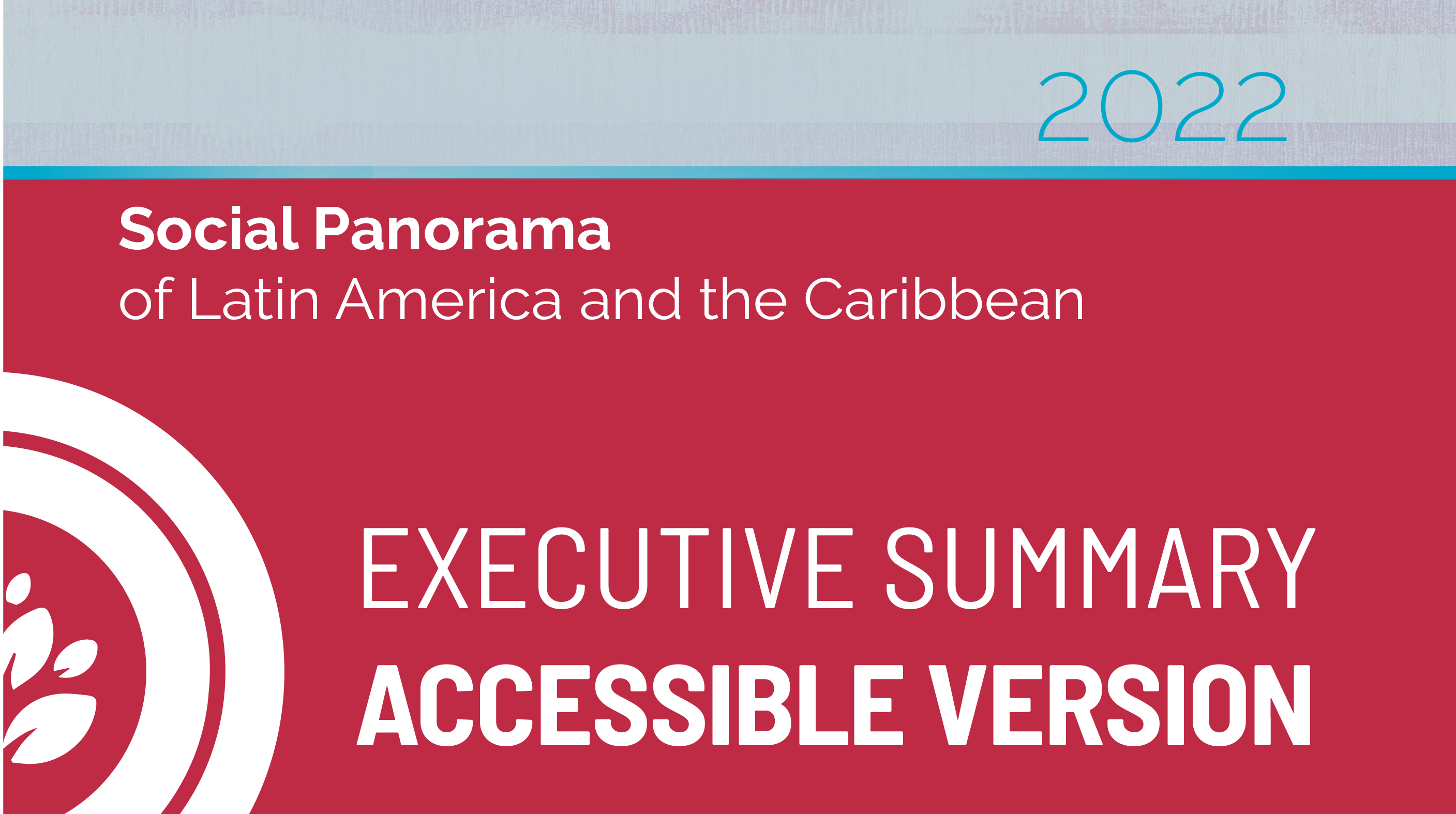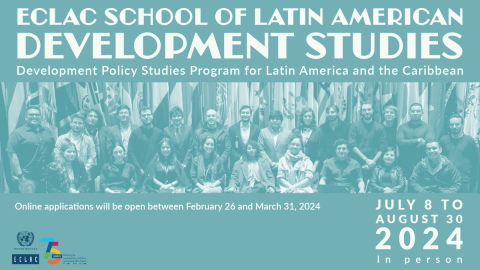Announcement
The Economic Commission for Latin America and the Caribbean (ECLAC) presented its first publication accessible to the visually impaired today, marking the launch of a new institutional editorial line. The publication, Social Panorama of Latin America and the Caribbean 2022. Executive summary: accessible format, is compatible with screen readers.
According to ECLAC data, more than 13% of the population of Latin America and the Caribbean has a disability, which is equivalent to more than 70 million people. There are more than 1 billion people with disabilities in the world.
"The launch of the accessible version of the Executive Summary of the Social Panorama of Latin America and the Caribbean 2022 report is the beginning of a great learning process for ECLAC," said the Executive Secretary of the UN regional body, José Manuel Salazar-Xirinachs, during the hybrid (in-person and virtual) event held at the organization's headquarters in Chile.
"This milestone marks the beginning of a new ECLAC editorial line, which will undoubtedly be a long journey with many challenges that we will surmount with our firm commitment to advance towards the inclusion of persons with disabilities," said the senior official.
Since 2021, ECLAC has had a Strategy for Disability Inclusion (CEPALDIS), designed to cover the period 2021-2025. This responds to the mandate of the United Nations Disability Inclusion Strategy (UNDIS), developed in 2019, in line with the Convention on the Rights of Persons with Disabilities.
ECLAC has made progress in implementing CEPALDIS through various actions, explained José Manuel Salazar-Xirinachs.
For instance, sign language interpretation was introduced in the activities of the subsidiary bodies and in the launching of the institution's flagship reports (including the Social Panorama).
Similarly, the institution's facilities and offices have been adapted to make them physically accessible, and progress has been made in complying with accessibility standards on ECLAC's main website.
Consultants with disabilities have been hired for various tasks, including the recent participation of high-level authorities and panelists with disabilities in the Sixth Meeting of the Forum of Latin American and Caribbean Countries on Sustainable Development, held at the end of April.
"Nevertheless, there are still major challenges that we must face in order for ECLAC to be a truly inclusive institution, both internally and externally," acknowledged José Manuel Salazar-Xirinachs.
"One of these challenges is the accessibility of our knowledge production, which is an important part of the work we do. In order to include people with disabilities in our daily work, it is essential to move towards documents and publications that are accessible to people with visual disabilities. That is why, within the framework of CEPALDIS, the commitment to make progress in the accessibility of our flagship reports stands out," he said..
His presentation was followed by comments from María del Carmen Millán, Director of Personal Autonomy, Technology and Accessibility of the ONCE Social Group of Spain; Selene Caraballo, ECLAC consultant; and Juan Ángel de Gouveia, President of the Latin American Network of Organizations of Persons with Disabilities and their Families (RIADIS).
"People with visual disabilities often face limitations when it comes to exercising their right to information and do not have the same opportunities as other people in society. That is why it is essential that public and private administrations, organizations, companies and the entire disability association movement work together to eradicate these limitations and barriers to access for vulnerable groups," said María del Carmen Millán, Director of Personal Autonomy, Technology and Accessibility of the ONCE Social Group (Spain).
Selene Caraballo, a consultant with a disability who supported the process of preparing ECLAC's accessible publication, expressed her gratitude for the opportunity to participate in the initiative, valued the commitment shown by the institution, highlighted the result and urged the creation of a long-term work plan.
"It's not easy to work on accessibility, but not for the reasons most people think. It tends to be complex because it is usually left until the end of the production chain. And when this happens, more resources are required, there is less time and the results are often compromised," explained Caraballo, adding, "I hope this experience will be the basis for many more accessible documents and will serve as an inspiration for other organizations."
"Accessibility lessens the impact that disability has on our lives. I invite you to start working today on the accessibility of the document you are going to write tomorrow," she reflected.
Juan Angel de Gouveia of RIADIS noted that "this new (ECLAC) publication that has been made accessible for the visually impaired is a milestone for us in Latin America." "We hope that ECLAC will be a model that generates impact not only in the region, but around the world, for civil society, for all people. To show that accessibility, these accessible formats, are possible."
Also speaking at the event were Raúl García-Buchaca, ECLAC Assistant Executive Secretary for Programme Administration and Analysis (video); Alberto Arenas, Director of the Social Development Division (moderator); and Sally Shaw, Director of ECLAC's Documents and Publications Division.
ECLAC is currently developing a guide for the preparation of accessible documents and publications, and during the year will hold workshops to integrate accessibility within the institution, among other actions planned to make further progress in the area of accessibility.



